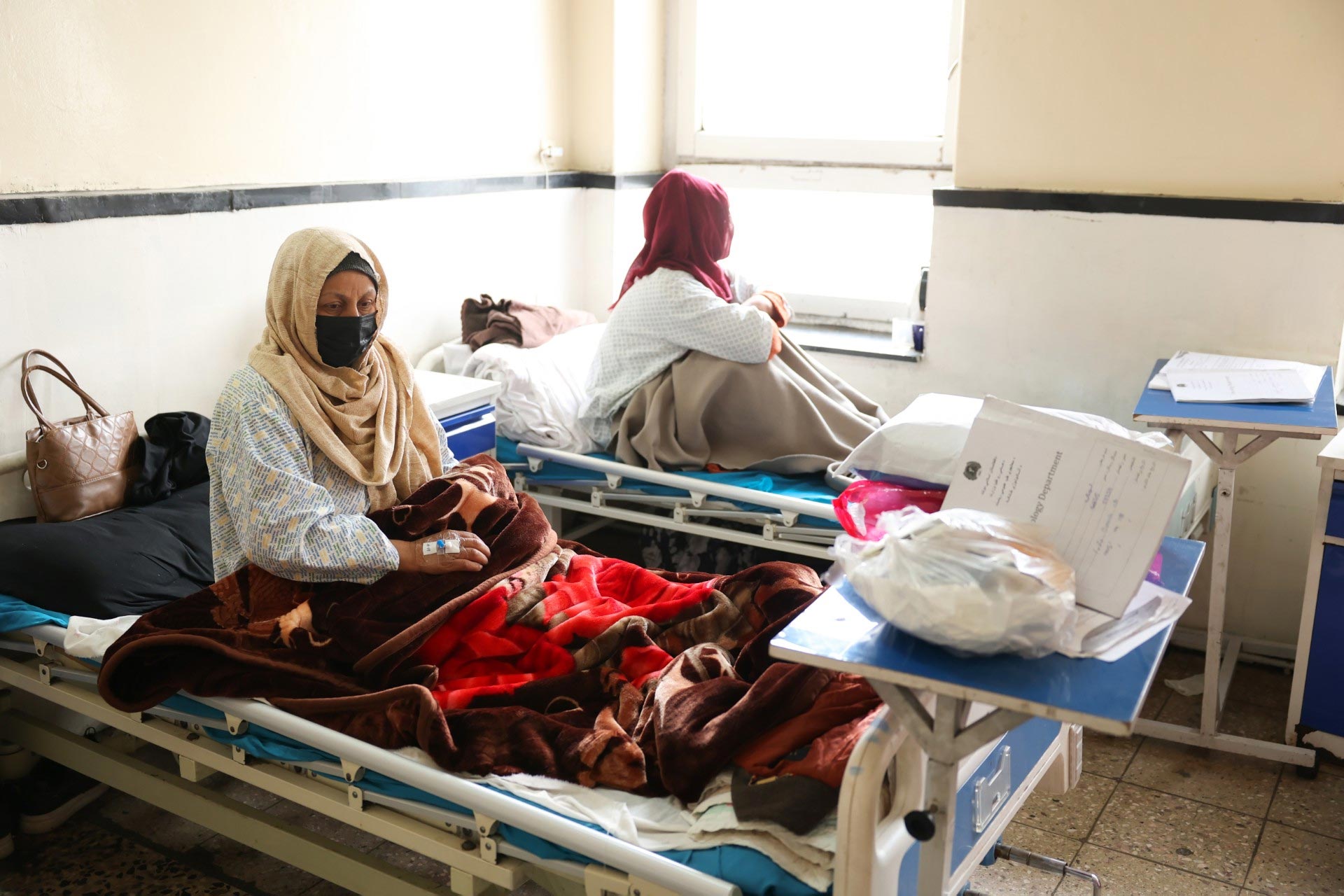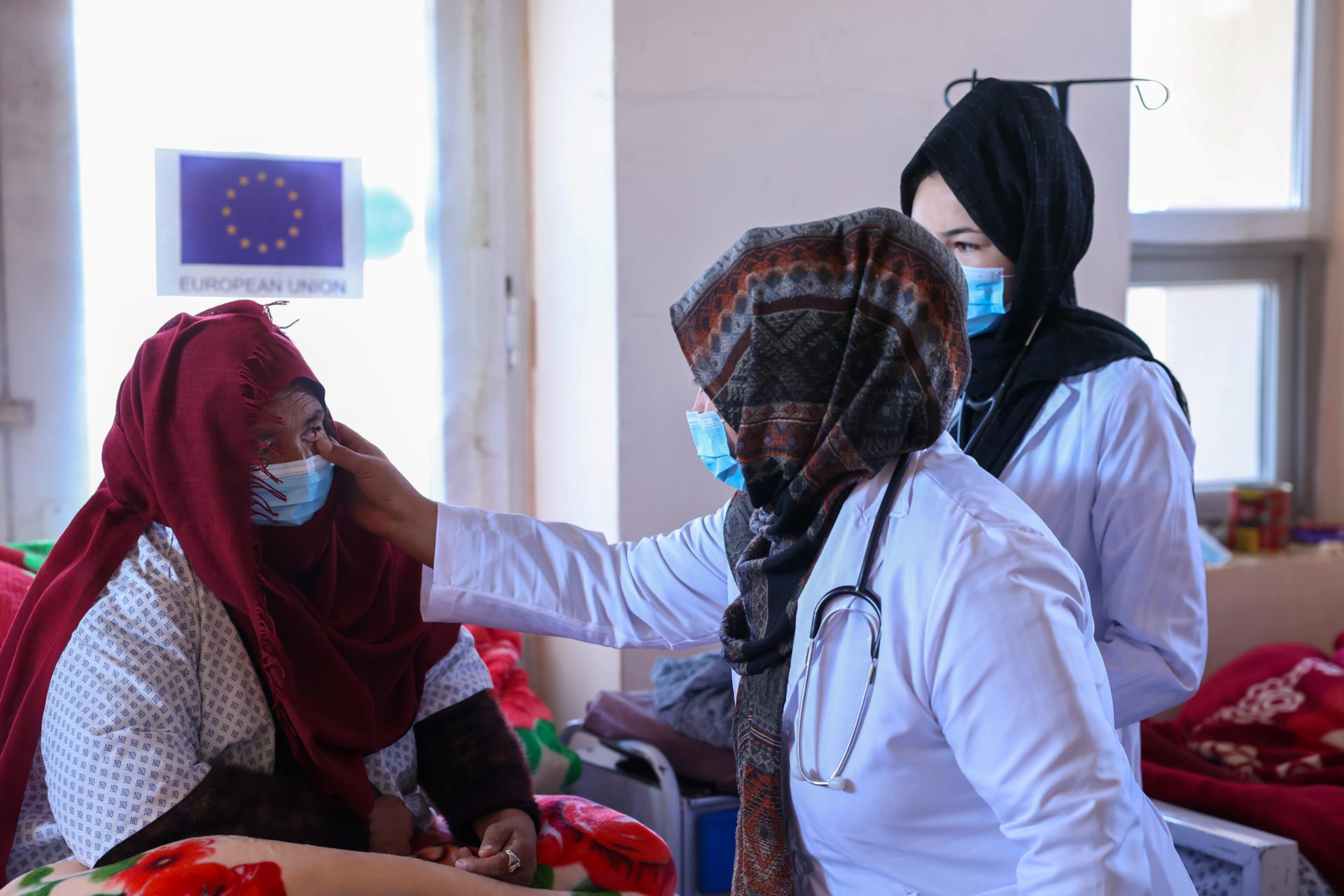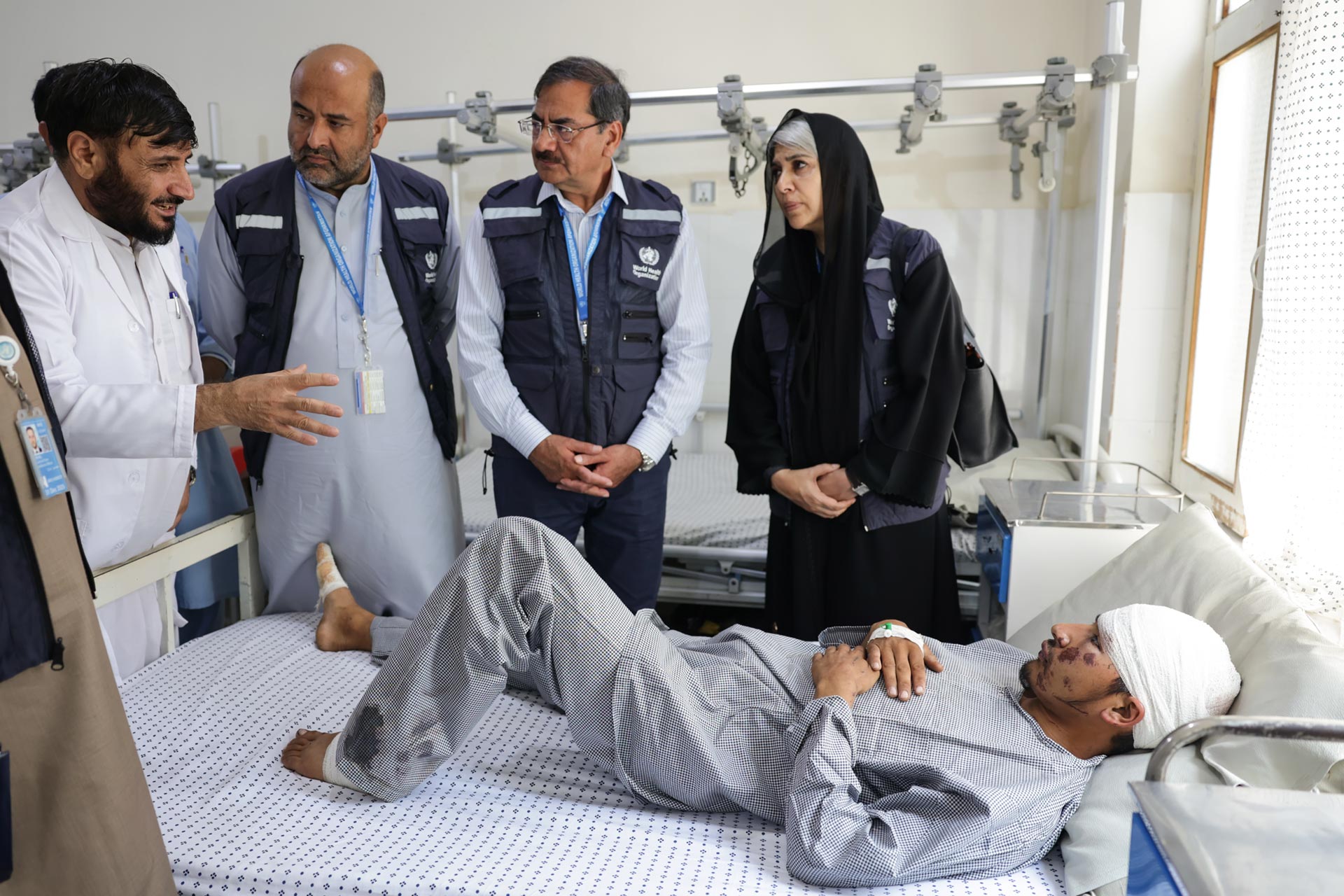21 September 2025, Kabul, Afghanistan – Noncommunicable diseases (NCDs) are taking a heavy toll on Afghanistan health system. Heart disease, diabetes, cancer and chronic lung conditions account for 43% of deaths in the country, a figure expected to rise above 60% by 2030, mainly among women. Substance use and road traffic accidents further exacerbate this burden.
 The WHO Representative in Afghanistan inspecting the women’s and children’s drug addiction treatment centre in Bamyan Province.
The WHO Representative in Afghanistan inspecting the women’s and children’s drug addiction treatment centre in Bamyan Province.
Thousands of Afghan families face long waiting lists for treatment, with timely life-saving care often difficult to get, especially in rural areas. Cardiovascular disease alone claims over 40 000 lives each year, placing Afghanistan among the countries with the highest age-adjusted death rates.
 Ms Frozan, a 43-year-old cancer patient at the National Cancer Hospital in Kabul.Cancer also weighs heavily, particularly on Afghan women, with breast and cervical cancers among the top three. Sadly, most patients only seek medical help at late stages (Stage 3 or Stage 4) when treatment is far less effective.
Ms Frozan, a 43-year-old cancer patient at the National Cancer Hospital in Kabul.Cancer also weighs heavily, particularly on Afghan women, with breast and cervical cancers among the top three. Sadly, most patients only seek medical help at late stages (Stage 3 or Stage 4) when treatment is far less effective.
Amid these challenges, mental health is emerging as one of Afghanistan’s most urgent yet overlooked concerns. Years of conflict, natural disasters and displacement have left deep psychological impacts, particularly among families returning from Pakistan and the Islamic Republic of Iran. It is estimated that one in five Afghans lives with a mental health condition, and last year, more than half of returning families suffered from disorders such as anxiety, depression, or post-traumatic stress. Despite this urgent need, provincial hospitals and primary health care services still lack mental health services, leaving many of the country’s most vulnerable populations without care.
 Doctors at the women’s and children’s drug addiction treatment centre in Bamyan Province examining patients.For families like that of Rahimi in eastern Afghanistan, these burdens are deeply personal. The recent earthquake destroyed his home, disrupted his wife’s diabetes care and left his two teenage daughters struggling with anxiety and fear. “We survive the disasters, but the illness and worry never leave,” Rahimi says.
Doctors at the women’s and children’s drug addiction treatment centre in Bamyan Province examining patients.For families like that of Rahimi in eastern Afghanistan, these burdens are deeply personal. The recent earthquake destroyed his home, disrupted his wife’s diabetes care and left his two teenage daughters struggling with anxiety and fear. “We survive the disasters, but the illness and worry never leave,” Rahimi says.
In response, Afghanistan has taken several important steps. In March 2025, the Ministry of Public Health approved a national health policy prioritizing NCD prevention and care, cancer services and mental health. WHO has been working closely with the health authorities to translate this policy into action by expanding access to care, strengthening community awareness and supporting vulnerable groups, especially women and children.
“Across Afghanistan, millions face the daily burden of chronic illness and mental health challenges, placing enormous pressure on an already fragile health system,” says the WHO Representative to Afghanistan, Dr Edwin Ceniza Salvador.
“Beyond physical disease, trauma and psychological suffering continue to affect families and communities. This highlights the shared responsibility of WHO, health authorities and donors to expand access to care, address both NCDs and mental health, and ensure quality support reaches those who need it most."
 The Deputy WHO Representative, along with other WHO staff, assessing the condition of a patient injured in the Kunar earthquake at Asadabad Provincial Hospital.
The Deputy WHO Representative, along with other WHO staff, assessing the condition of a patient injured in the Kunar earthquake at Asadabad Provincial Hospital.
Unlike earthquakes or outbreaks, NCDs and mental health conditions may not make the headlines, but they affect every province in the country. Increasing service provision, raising awareness and demonstrating solidarity with those affected is an urgent task.








